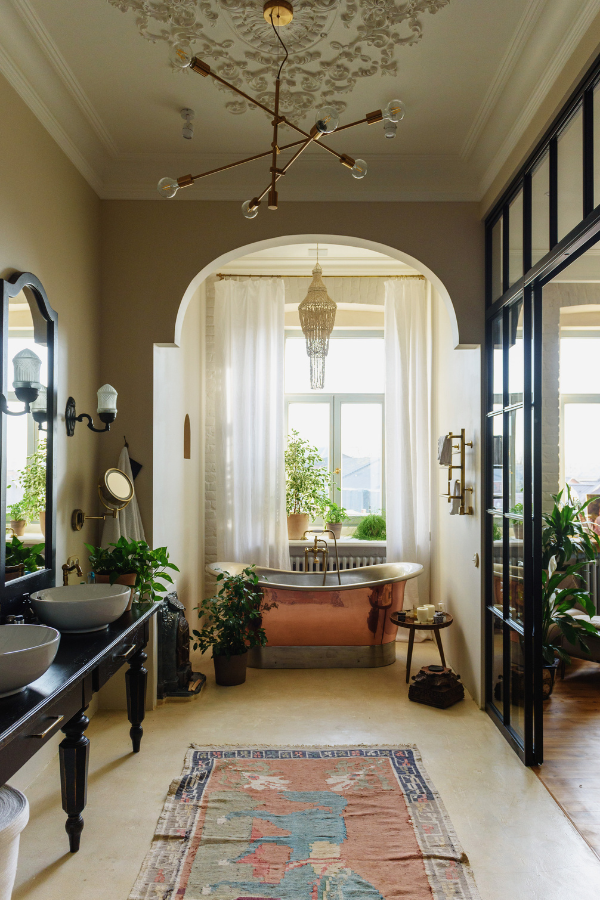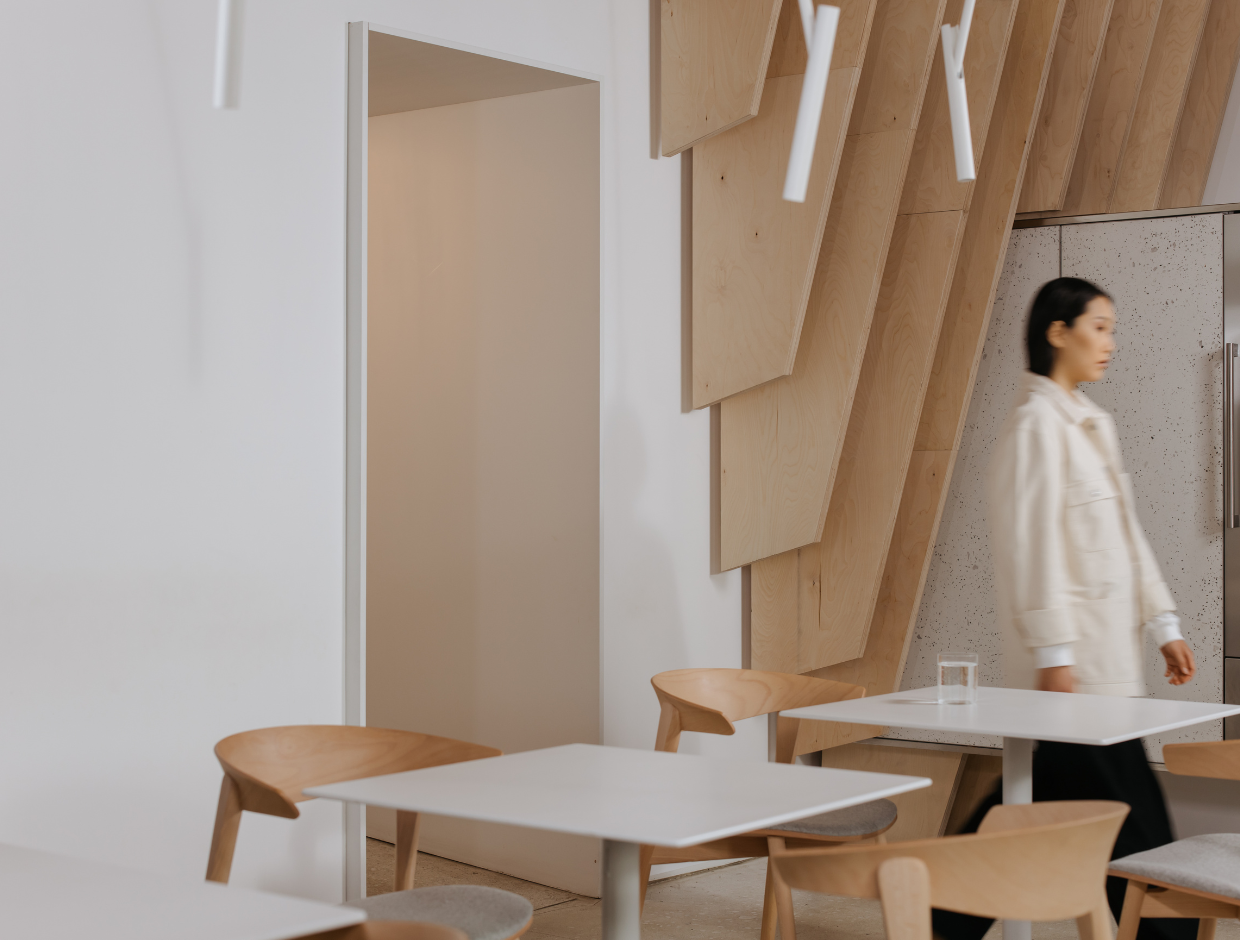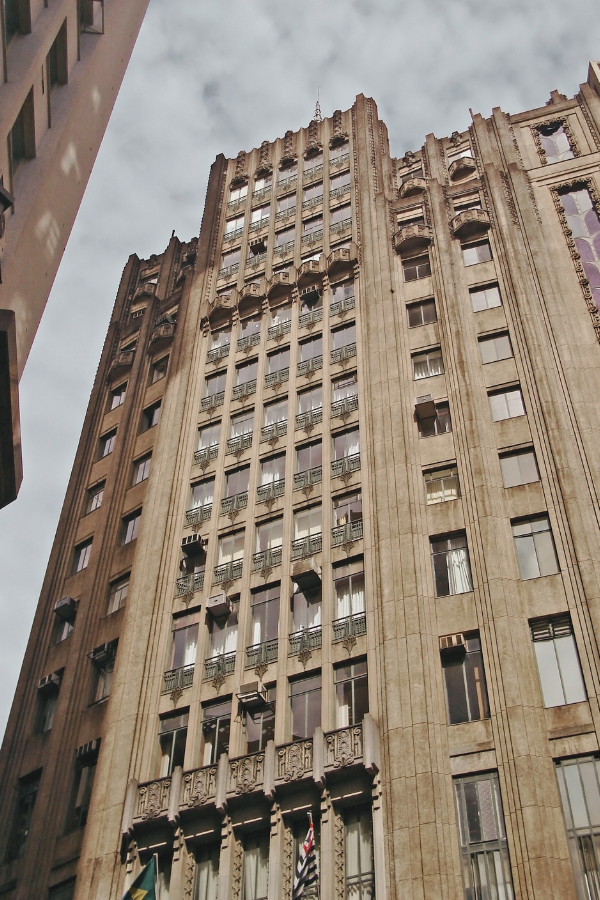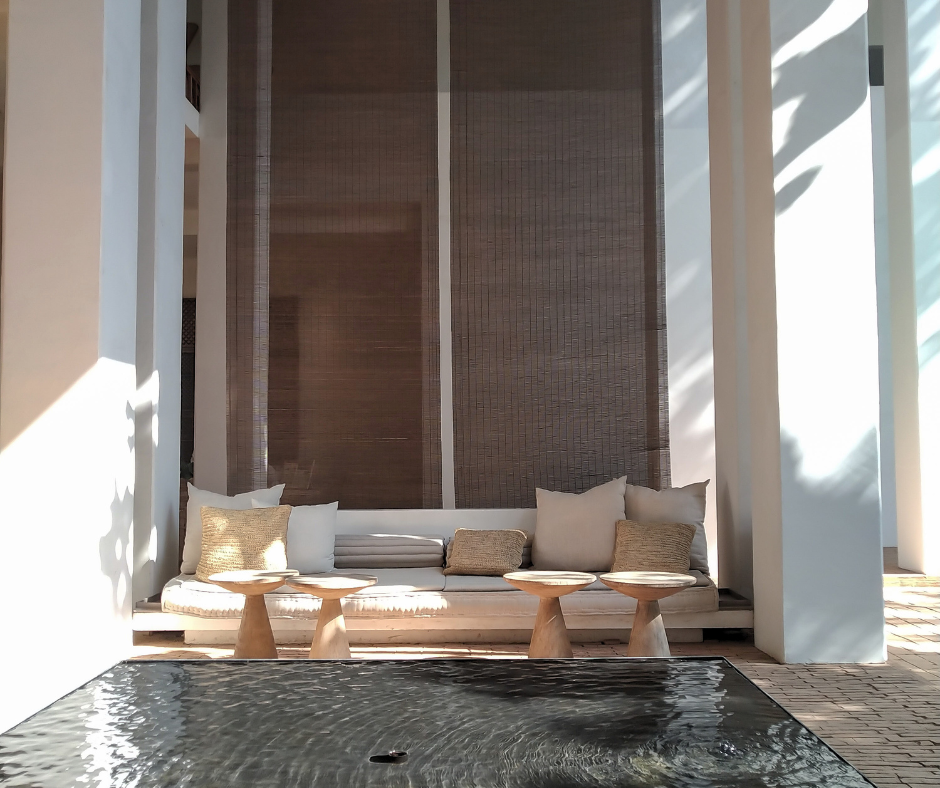

Female Designers Optimizing Corporate Spaces with Feng Shui
Summary
This article explores how Feng Shui principles are applied in corporate spaces, focusing on the work of female designers like Debra Duneier, Carole Hyder, Marie Burgos, and Anjie Cho. These designers blend traditional Feng Shui with contemporary design, sustainability, and environmental psychology to create productive and harmonious work environments.
Reflection Questions
- How can the integration of Feng Shui principles improve employee well-being and productivity in a corporate setting?
- What are the benefits of combining sustainability with Feng Shui in modern interior design?
- How do different designers personalize the application of Feng Shui to suit various types of corporate spaces?
Journal Prompt
Reflect on a time when you felt particularly productive and at ease in a workspace. Describe the elements of that environment. How could Feng Shui principles have contributed to creating that atmosphere? Consider changes you could make in your current workspace to enhance its harmony and functionality.
From Marie Burgos to Debra Duneier, this article showcases how the timeless principles of Feng Shui are being applied in modern corporate environments by a group of talented female designers. These women blend traditional Feng Shui with contemporary design, sustainability, and environmental psychology to create spaces that enhance productivity, well-being, and overall harmony. Learn all about how the principles of Feng Shui are applied in corporate spaces while celebrating the work of these incredible female designers.
What Exactly is Feng Shui?
Feng Shui is an ancient Chinese practice that focuses on harmonizing individuals with their surrounding environment to promote health, prosperity, and well-being. According to feng shui, arranging physical spaces, such as homes and offices, in certain ways allows for the optimal flow of positive energy, or Chi.
This is achieved through careful consideration of spatial orientation, placement of furniture, use of colors and natural elements, and maintenance of a clutter-free environment. Any feng shui expert will tell you that the goal is to create a balanced and harmonious atmosphere that supports the occupants’ mental, emotional, and physical well-being.
An Abridged History of Feng Shui
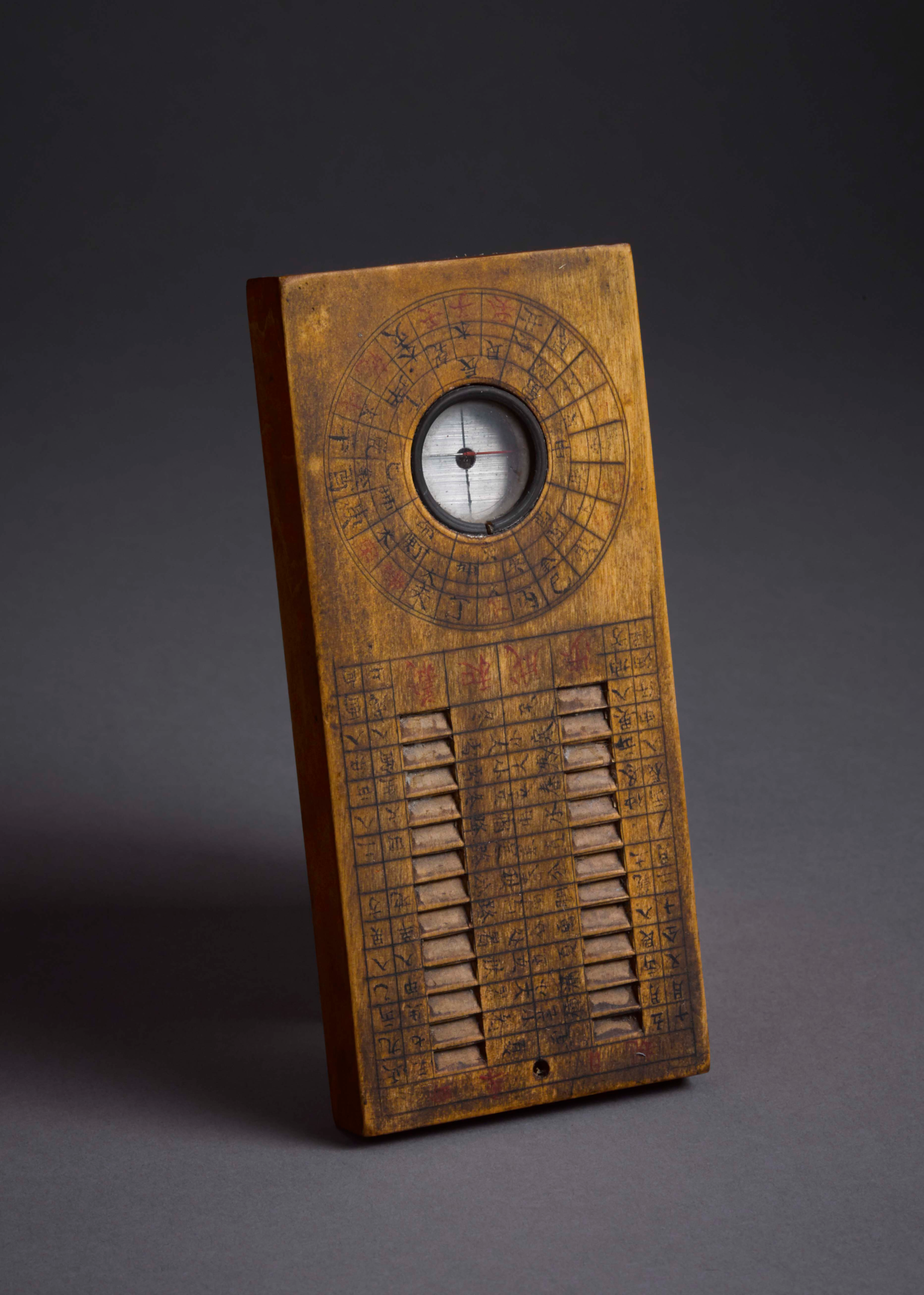

Feng Shui, translating to “wind and water,” has a history that spans thousands of years, deeply rooted in Chinese culture and philosophy. Its origins can be traced back to ancient China, where it was initially used to orient buildings, particularly significant structures such as tombs, in accordance with the natural landscape and astronomical phenomena. The earliest evidence of Feng Shui practices dates back to around 4000 BCE, with the development of the practice heavily influenced by Taoism, which emphasizes living in harmony with the Tao, or the fundamental nature of the universe. Early Feng Shui relied on the observation of celestial bodies, including stars and planets, and their impact on the Earth’s energy fields.
As Chinese civilization evolved, so did Feng Shui, expanding from its initial applications in burial sites to include the design and organization of entire cities, homes, and workplaces. During the Han Dynasty (206 BCE – 220 CE), Feng Shui principles were documented in classical texts, and its practice became more sophisticated, incorporating the concepts of Yin and Yang (the balance of opposites) and the Five Elements (wood element, fire element, earth element, metal element, and water element).
These elements were believed to interact with the energy flow, influencing everything from health and wealth to relationships and happiness. Over the centuries, Feng Shui developed into a complex and integral part of Chinese culture, influencing architecture, urban planning, and personal living spaces, and it continues to be practiced and respected globally for its holistic approach to creating harmonious environments.
Applying Feng Shui Principles in Office Space


Feng Shui revolves around harmonizing individuals with their surrounding environment. In corporate interior design, applying Feng Shui principles can enhance productivity, satisfaction, mental clarity, and work outcomes. By integrating these Feng Shui principles, a corporate office can create a balanced work environment that supports the well-being and success of its employees. Below are a few key principles and how they can be implemented in a feng shui home office or corporate interior.
Entrance and Reception Area
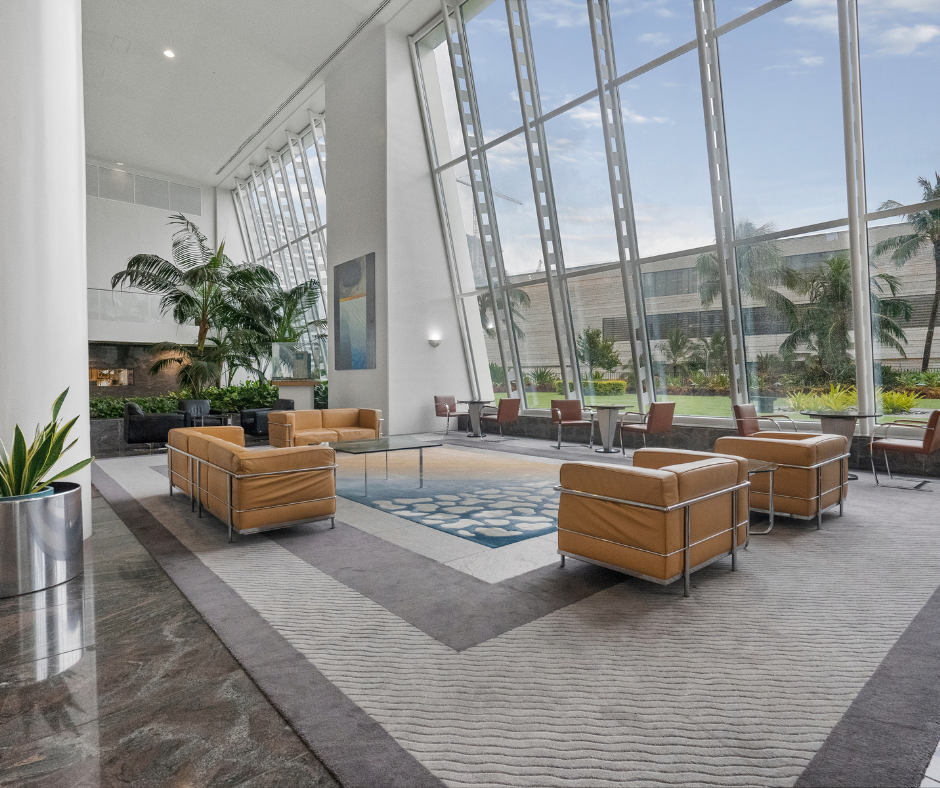

First on our list of Feng Shui tips is to pay attention to your office lobby. The entrance and reception area play a crucial role in welcoming real positive energy (Chi) into a feng shui office. The entrance should be open, clutter-free, and well-lit, facilitating the flow of positive energy. The reception desk should be positioned diagonally opposite the front door, allowing the receptionist to see who is entering while symbolizing a protective stance.
Organic Elements and Natural Lighting
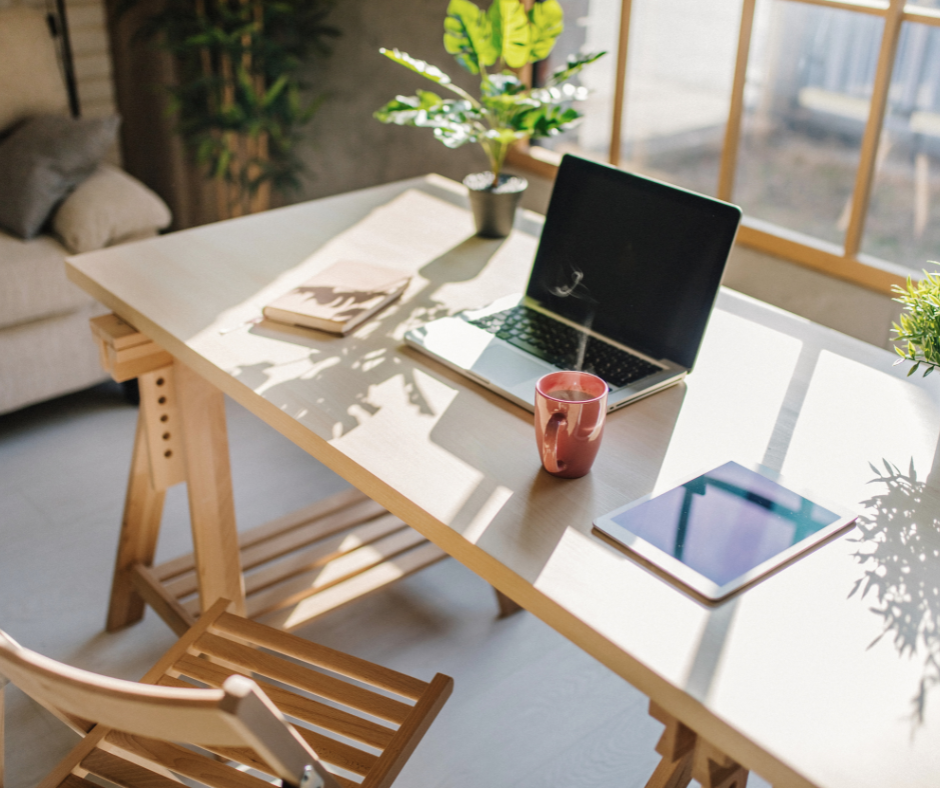

Good feng shui means maximizing natural light to enhance energy and productivity. Light-colored walls and mirrors can be used to reflect light into darker areas. Incorporating plants brings in natural elements, improves air quality, and reduces stress. Plants with rounded leaves are particularly effective for creating a calming effect.
Feng Shui Office Colors and Materials
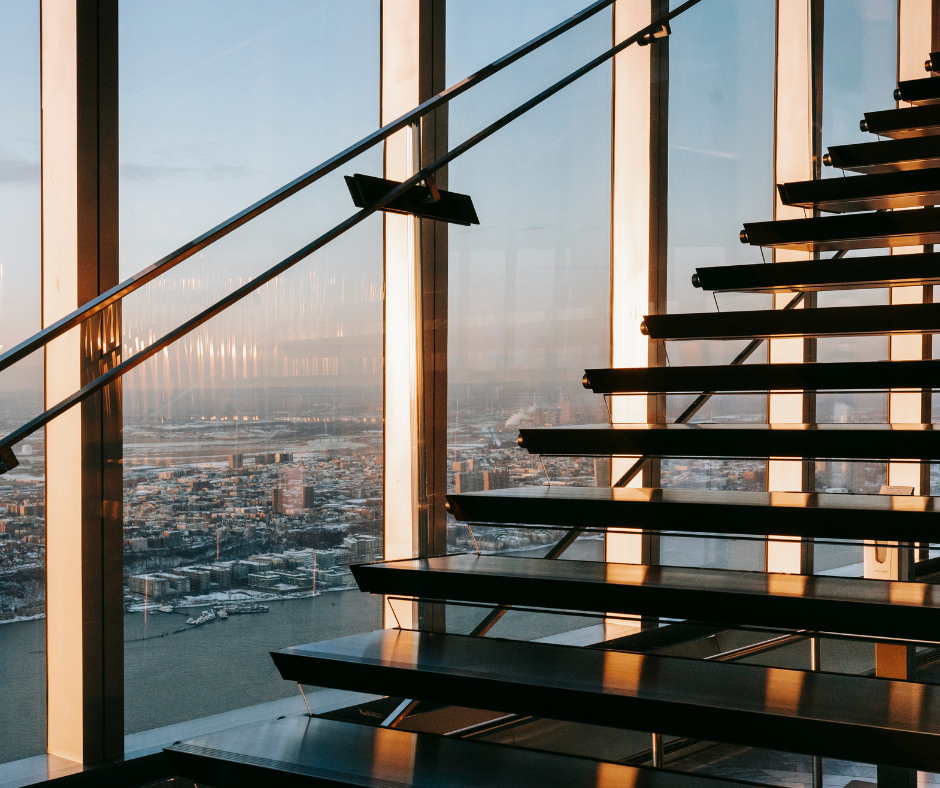

Using balanced colors and natural materials in office design can further harmonize the environment (think a brown wood desk or dining room table, a solid wall painted sage green, etc). Colors should be chosen to promote different types of energy; for instance, blue and green are calming, while red and yellow are energizing. Natural materials like wood, stone, and bamboo create a grounded and harmonious atmosphere in office spaces.
Clutter-Free Environment
Maintaining a clutter-free environment is vital for allowing the free flow of energy. Desks, storage areas, and common spaces should be kept organized, and regular cleaning should be conducted to prevent the accumulation of negative energy.
accepting new mastermind applications
For Fall ’24
Get unstuck. Find fulfillment. Rediscover your passion for the design industry we all love! Be one of the first to join our next exclusive, curated cohort of creative women and find support like you’ve never had before.


Symbolism and Art
Incorporating positive symbols and art can significantly influence the office atmosphere. Art and symbols that represent success, prosperity, and harmony should be used, while images or objects that evoke negative emotions should be avoided. You don’t need to incorporate ancient Chinese art to create a feng shui office (although you can). Instead, consider allowing employees to personalize their workspaces with items that bring them joy and motivation can also enhance their sense of well-being.
Office Layout
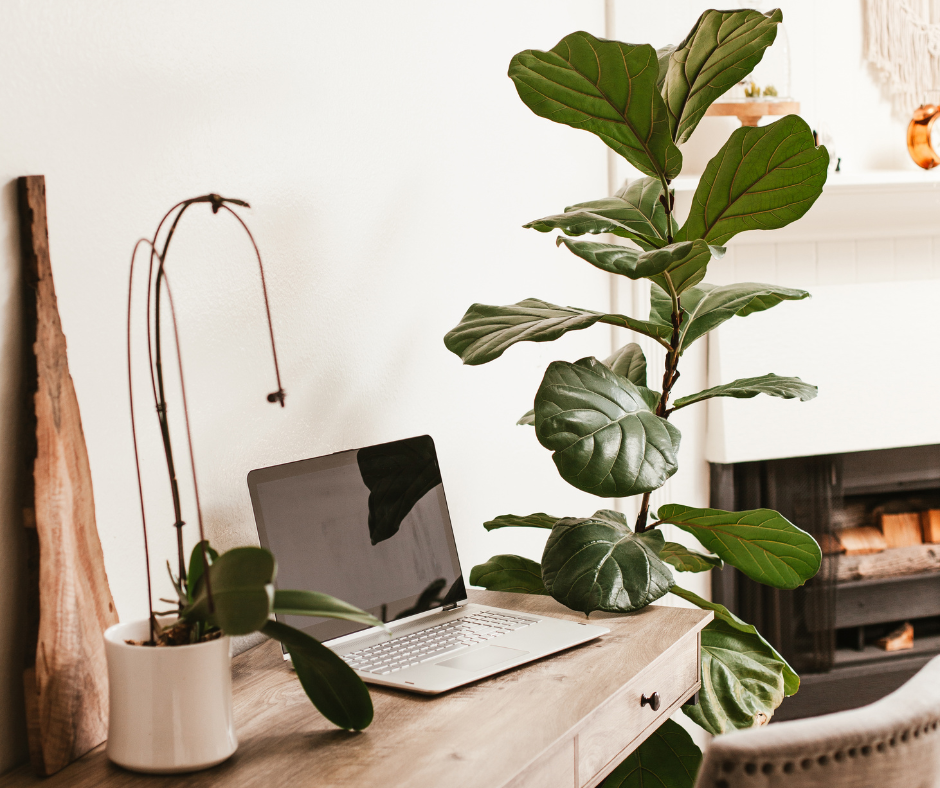

In a feng shui office layout, it is essential to maintain clear pathways to allow the free flow of energy. Open spaces can promote collaboration and the free flow of ideas and energy, but it’s equally important to provide private spaces for focused work.
To incorporate feng shui here, desks should be placed in the “command position” or “power position,” where the person sitting can see the entrance without being directly in line with it. This positioning promotes a sense of control and security. Desks should not be directly aligned with doors to avoid a sense of vulnerability and distraction.
Break Areas and Rest Zones
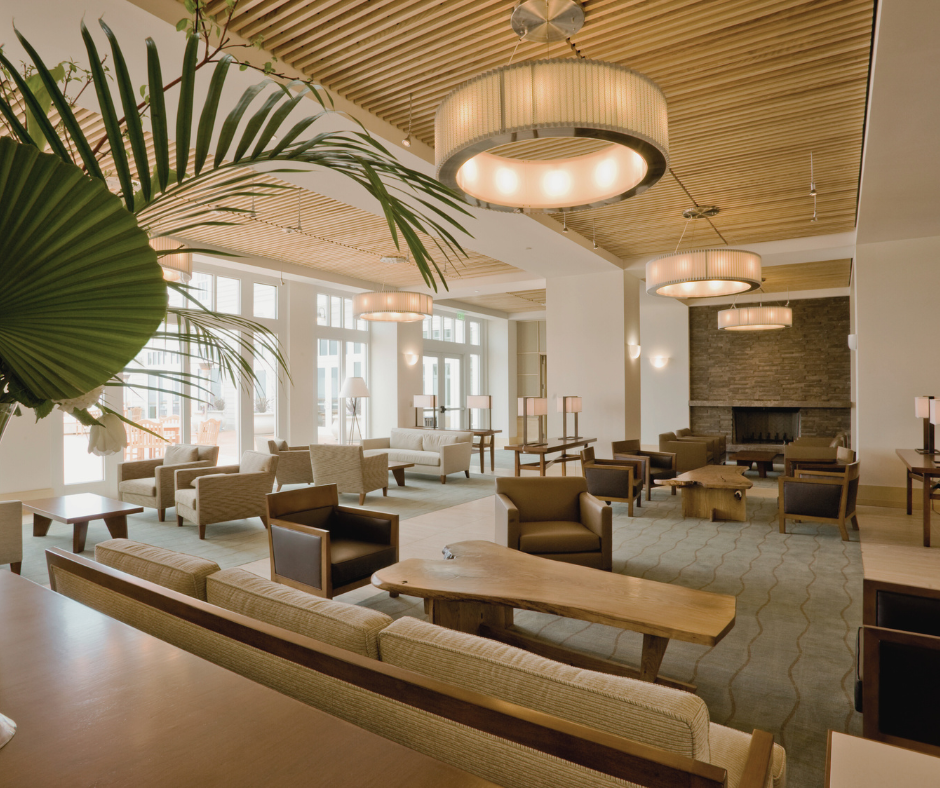

Comfortable break areas where employees can relax and recharge are important for maintaining a balanced work environment. If possible, rest zones with comfortable seating and calming decor should be included to provide spaces for mental relaxation.
Water Features
Water features, such as fountains or aquariums, can enhance the flow of positive energy and symbolize wealth and prosperity.
Electronic Equipment
Lastly, electronic equipment should be kept organized, with minimal exposed wires to prevent energy blockages. Placing electronic equipment in less prominent areas can reduce electromagnetic interference with the natural flow of energy.
Fuel your creative fire & be a part of a supportive community that values how you love to live.
subscribe to our newsletter
Five Female Architects and Interior Designers Using Feng Shui to Create Incredible Corporate Spaces
Debra Duneier and EcoChi
Debra Duneier is the founder of EcoChi, a design company that integrates principles of sustainability, Feng Shui, and environmental psychology to create harmonious and healthy environments. With a background in these disciplines, Debra has developed a unique approach to design that prioritizes both the well-being of individuals and the health of the planet.
Through EcoChi, Debra has worked on numerous corporate projects, focusing on creating an office environment that enhance productivity, creativity, and overall well-being. Her designs incorporate sustainable materials and energy-efficient solutions, while also considering the psychological impact of the environment on its occupants.
By blending traditional Feng Shui practices with modern sustainability techniques and insights from environmental psychology, Debra aims to transform corporate spaces into places where employees can thrive. Her work has gained recognition for its innovative approach to integrating holistic design principles into the modern workplace.
Carole Hyder
Carole Hyder is an internationally recognized Feng Shui expert known for her extensive work in both residential and commercial environments. With a deep understanding of classical Feng Shui principles, Carole has successfully integrated these ancient practices with modern design elements, creating balanced and harmonious spaces that enhance the well-being and functionality of their occupants.
Her expertise extends to a wide range of settings, including corporate offices, healthcare facilities, and private homes. Carole’s approach involves a careful analysis of each space, considering factors such as energy flow, spatial orientation, and the placement of furniture and decor. She aims to optimize these elements to foster environments that promote health, productivity, and overall harmony.
In addition to her consulting work, Carole Hyder is also a sought-after speaker, educator, and author. She has written several books on Feng Shui, sharing her knowledge and insights with a broader audience. Her contributions to the field have made her a respected authority on how to apply Feng Shui principles in contemporary settings, bridging the gap between traditional wisdom and modern needs.
Marie Burgos
Marie Burgos is a designer known for her unique approach that blends contemporary design with Feng Shui principles. She has worked on numerous commercial projects, including offices and hospitality spaces, but she focuses on residential. Still, Carole’s wisdom can easily be applied to corporate interiors. Her designs are characterized by a sophisticated balance of modern aesthetics and traditional Feng Shui elements, ensuring that the spaces she creates not only look good but also promote well-being and productivity.
Amanda Gibby Peters
Amanda Gibby Peters is the founder of “Simple Shui,” a practice that specializes in offering practical and accessible Feng Shui solutions. She has collaborated with various businesses to enhance their spaces using Feng Shui principles. Amanda’s approach is known for its simplicity and effectiveness, making Feng Shui principles easy to understand and apply in everyday life. Her work focuses on helping clients create environments that are supportive, balanced, and conducive to success.
Anjie Cho
Anjie Cho is an architect and interior designer who integrates sustainable practices with Feng Shui. She has worked on a variety of corporate and hospitality projects, creating spaces that support health, productivity, and overall well-being. Anjie’s designs emphasize the importance of sustainability and environmental responsibility, while also incorporating Feng Shui principles to ensure a positive energy flow within the spaces she designs.
Final thoughts on Creating Corporate Environments with Great Feng Shui
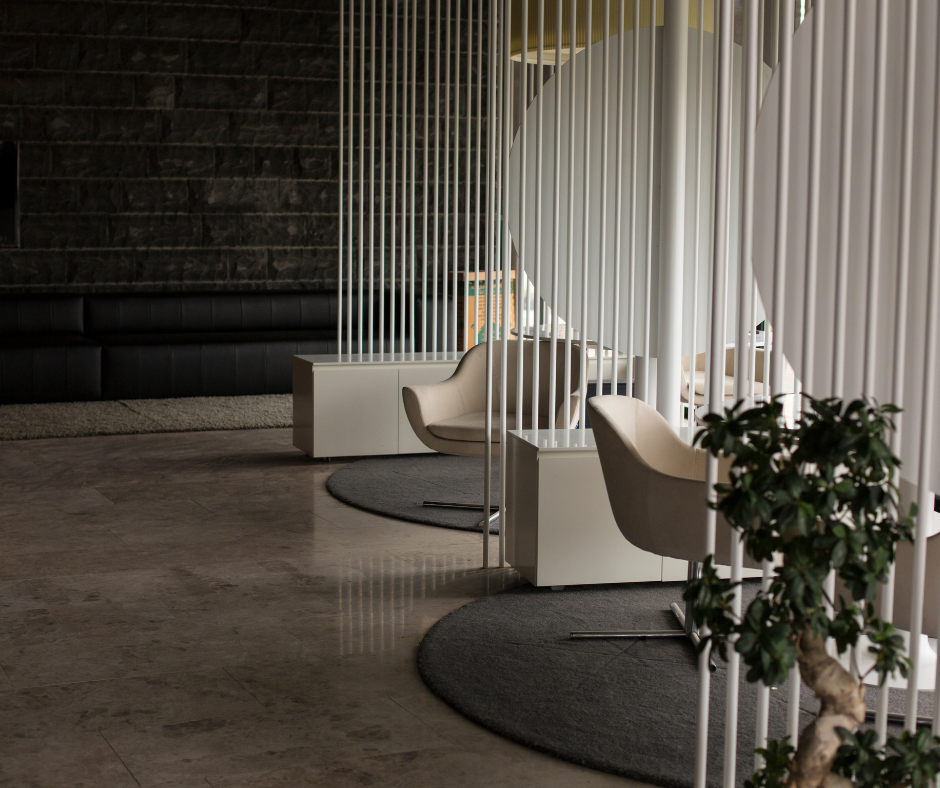

Incorporating Feng Shui into corporate design not only enriches the aesthetic appeal of a space but also significantly enhances the well-being and productivity of its occupants. The pioneering work of designers like Debra Duneier, Carole Hyder, Marie Burgos, and Anjie Cho exemplifies the powerful impact that harmonious design can have on the modern workplace.
By integrating ancient wisdom with modern practices, these women are creating corporate environments that support both human and environmental health, paving the way for more sustainable and effective workspaces.




